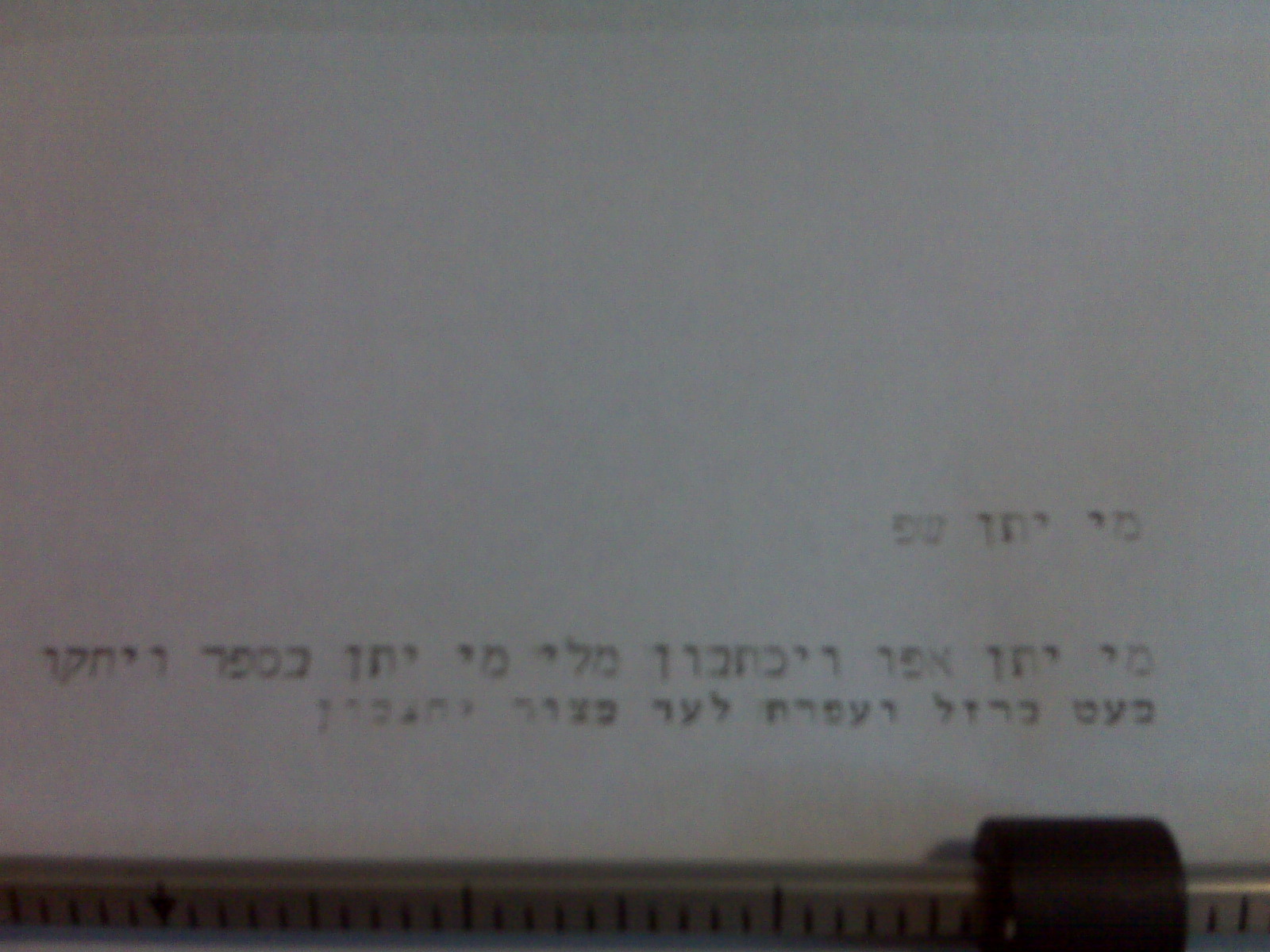When I asked earlier for comments about students and profs “friending” on Facebook, I rather expected (on the basis of the usual media handling of the matter) something like this:
Dr. Peter Venkman: This city is headed for a disaster of biblical proportions.
Mayor: What do you mean, "biblical"?
Dr. Raymond Stantz: What he means is Old Testament, Mr. Mayor, real wrath-of-God type stuff. Fire and brimstone coming down from the sky! Rivers and seas boiling!
Dr. Egon Spengler: Forty years of darkness! Earthquakes, volcanoes...
Winston Zeddmore: The dead rising from the grave!
Dr. Peter Venkman: Human sacrifice. Dogs and cats living together. Mass hysteria!
But the comments to my inquiry, even among those with reservations about student/prof friending, were persistently reasonable. I shouldn’t be too surprised: when teachers in higher education* discuss social media, the matter is one that comes up regularly, and so most of us have had time to think on it and hear from others.
As see it, there are excellent reasons for students and profs to Facebook-friend…and also excellent reasons not to. It depends on how one answers some questions that don’t seem to come up regularly in the sound-bite-sized media scare pieces.
What is Facebook for? You’ll often hear some pretty definitive pronouncements about what Facebook (or other tools like Twitter) is for. Facebook is for sharing pictures of your cat. Facebook is for dorking around with a quiz while dozing through class. Facebook is for reconnecting with old friends. Facebook is for self-promotion. I’m going to make a suggestion here:
It’s too early to say what Facebook is for. Within the bounds of its terms of service,
Facebook is for whatever a user says it’s for. That said, it’s a really good idea for each user to clarify in her own mind what Facebooks is for,
for her. (All of this goes double for Twitter, and I’ll say more in a later post.)
For some professors, Facebook is a place to relax with peers and with old friends (power-equal relationships). Let their hair down. Maybe engage in a little harmless griping. It’s a combination faculty lounge, gym, pub, and backyard cookout. Such a prof would likely be wise not to “friend” students (at least, not without a pretty sophisticated and confident tailoring of her privacy settings).
For other professors, Facebook is an extension of their professional persona. To the extent they have non-professional contacts, those friends can be counted on to be “rated PG” when writing or commenting on their walls or tagging them in photos. These profs may welcome student “friend” requests as an opportunity to open an additional line of communication with students.
Of course, everything is a trade-off: a prof whose FB friends include students doesn’t get to use FB as an extension of the faculty lounge, doesn’t get to rip off cuss words, and should probably be circumspect about her political pronouncements (as she should in the classroom, since she has the power to intimidate students whose convictions differ from hers). So, OMG! On Facebook, as everywhere else, it turns out you can’t have your cake and eat it, too.
What is a “friend” on Facebook? I would be the first to agree that “
I am not friends with my students, and they are not friends with me.” When I say that, though, I use the word “friend” in its everyday sense: someone with whom I have a
power-equal relationship of mutual support and confidence. In that sense, friendship between faculty and students is not possible. But what is a Facebook “friend”? This simply brings us back to the question of what Facebook is for. For some, Facebook is a place where “friend” means the same thing as in the rest of my life. But for the most part, users are still determining what a “friend” is on Facebook.
For profs who have student friends on Facebook, “friend” is going to have a pretty circumscribed meaning in that context. Also, with the use of Friends Lists, the prof (and student) can micro-edit their privacy settings quite a bit. For example, a prof might not allow students to tag photographs of her; a student might not allow profs to see photos of her at all. Facebook “friends” don’t have to share everything, not even everything that they have/do on Facebook.
Some users rightly point out the issue of power-imbalance: with them, I will agree that, in general, a prof probably should not
offer friendship to students. When students offer friendship requests to their professors, we should respect the fact that they also are making themselves vulnerable: they may, through no fault of their own, suffer a bit of embarrassment down the line (another friend may post something inappropriate on their wall, for example). A student who “friends” a teacher is trusting that teacher not to capitalize on such an incident. For this reason, I’m inclined to “hold off” on accepting friendships from brand-new students: they may leave school, they may drop my classes, they may decide I’m a jerk. By contrast, if I find myself in an awkward, too-soon-FB-friendship with a new dad at my kid’s school (for example), at least there isn’t that awful power-imbalance making the situation worse.
I look forward to looking at the issue in a year or so, and seeing what the trends are then: what issues will continue to vex? Which ones will seem quaint or be eliminated by new options?
* My experience is with adult students. The question of how high school or middle school teachers might ethically use social media with their minor students is another kettle of fish.



